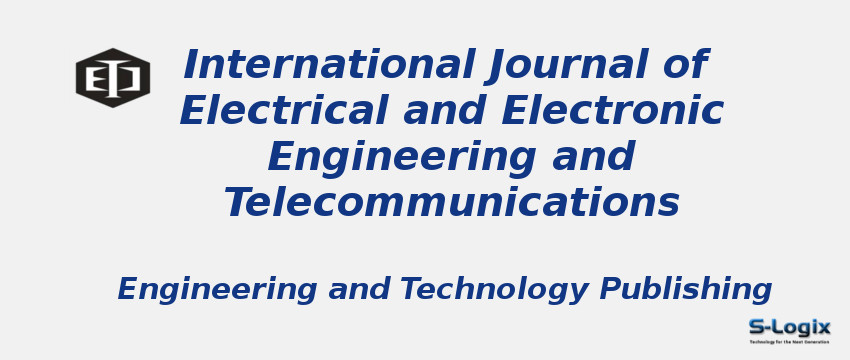Journal Home: Journal Homepage
Editor-in-Chief: Prof. Jason Z. Kang
Print ISSN: 23192518
Electronic ISSN:
Abstracting and Indexing: Scopus
Imapct Factor :
Subject Area and Category: Computer Science, Computer Networks and Communications, Engineering, Electrical and Electronic Engineering, Physics and Astronomy, Instrumentation
Publication Frequency:
H Index: 28
Q1:
Q2:
Q3: Computer Networks and Communications
Q4:
Cite Score: 6.8
SNIP: 0.654
Journal Rank(SJR): 0.245
Latest Articles: Latest Articles in International Journal of Electrical and Electronic Engineering and Telecommunications
Guidelines for Authors: International Journal of Electrical and Electronic Engineering and Telecommunications Author Guidelines
Paper Submissions: Paper Submissions in International Journal of Electrical and Electronic Engineering and Telecommunications
Publisher: Warsaw University of Technology
Country: Poland
